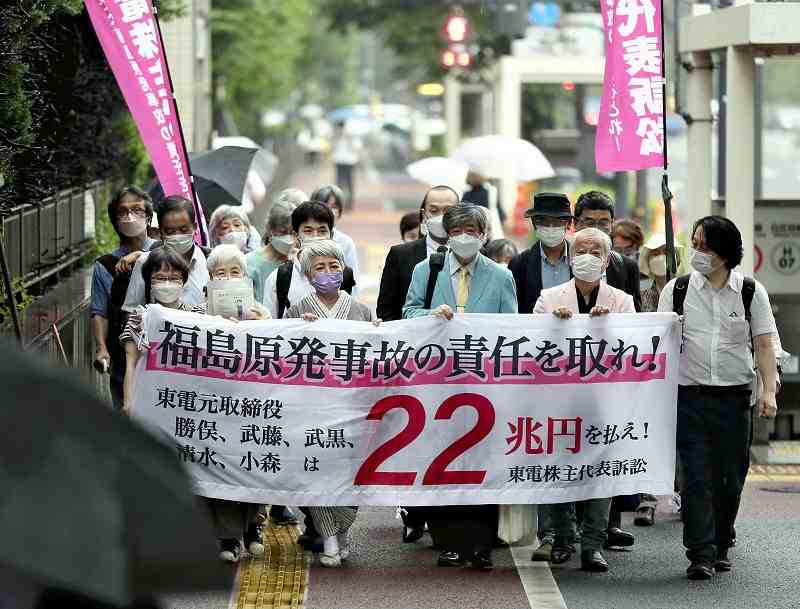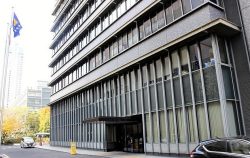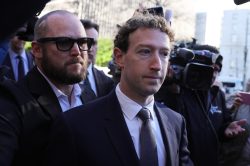
Plaintiffs and others walk toward the Tokyo District Court on Wednesday to hear a ruling on the lawsuit seeking compensation from former executives of Tokyo Electric Power Company Holdings, Inc. over the 2011 nuclear power plant accident.
14:50 JST, July 14, 2022
In a shareholder derivative lawsuit, which demands that corporate executives be held responsible for damage suffered by their corporation, the amount of compensation is often huge.
The latest such ruling ordered four former executives of Tokyo Electric Power Company Holdings, Inc. to pay the company about ¥13 trillion in compensation over the accident at its Fukushima No. 1 nuclear power plant in March 2011. If the ruling is finalized, the power company will file a claim against the individuals.
In similar lawsuits in the past, however, the full amount sometimes was not recovered as the amount of compensation was so large.
It came to light in 1995 that a commissioned worker of the New York branch of Daiwa Bank, a forerunner of today’s Resona Bank, was involved in illegal transactions that incurred losses of ¥110 billion to the bank. In a shareholder lawsuit over the case, the Osaka District Court in September 2000 ordered 11 former executives to pay a total of $775 million, then about ¥83 billion, to the bank in compensation.
At the Osaka High Court, the two sides reached a settlement in which the defendants would jointly pay a total of ¥250 million.
Major optical equipment maker Olympus Corp. was found in 2011 to have covered up a massive amount of losses. In a derivative lawsuit, the ruling ordering a former chairman and two others to pay a total of ¥59.4 billion was finalized by the Supreme Court in October 2020.
There was a case that led to the bankruptcy of two defendants.
In February 2008, the Supreme Court ordered two former executives of Duskin Co. to pay about ¥5.3 billion to the company over its practices in violation of the Food Sanitation Law.
According to Duskin, the two together paid a total of ¥100 million and went bankrupt, and so the remaining debt was waived.
The Companies Law stipulates that relevant executives ordered to pay compensation may be exempted from liability “by a resolution at a shareholders meeting.” This applies only when such executives had acted “without gross negligence in performing their duties.”
There is concern in the business world that if there are more such rulings, in which individuals are held liable to their companies for enormous damages, there will be no one willing to take on the responsibilities of management.
Top Articles in Society
-

Man Infected with Measles Reportedly Dined at Restaurant in Tokyo Station
-

Man Infected with Measles May Have Come in Contact with Many People in Tokyo, Went to Store, Restaurant Around When Symptoms Emerged
-

Woman with Measles Visited Hospital in Tokyo Multiple Times Before Being Diagnosed with Disease
-

Australian Woman Dies After Mishap on Ski Lift in Nagano Prefecture
-

Foreign Snowboarder in Serious Condition After Hanging in Midair from Chairlift in Nagano Prefecture
JN ACCESS RANKING
-

Japan PM Takaichi’s Cabinet Resigns en Masse
-

Japan Institute to Use Domestic Commercial Optical Lattice Clock to Set Japan Standard Time
-

Israeli Ambassador to Japan Speaks about Japan’s Role in the Reconstruction of Gaza
-

Man Infected with Measles Reportedly Dined at Restaurant in Tokyo Station
-

Man Infected with Measles May Have Come in Contact with Many People in Tokyo, Went to Store, Restaurant Around When Symptoms Emerged






















